The Republic of Panama has a set of provisions related to criminalization of the acts of corruption in its Criminal Code.
(In Spanish)
Código Penal
Título X Delitos Contra la Administración Pública
Capítulo I Diferentes Formas de Peculado
Artículo 332. El servidor público que sustraiga o malverse de cualquier forma, o consienta que otro se apropie, sustraiga o malverse de cualquier forma dinero, valores o bienes, cuya administración, percepción o custodia le hayan sido confiados por razón de su cargo, será sancionado con prisión de cuatro a diez años.
Si la cuantía de lo apropiado supera la suma de cien mil balboas (B/.100,000.00) o si el dinero, valores o bienes apropiados estuvieran destinados a fines asistenciales o a programas de desarrollo o de apoyo social, la pena será de ocho a quince años de prisión.
Artículo 333. El servidor público que, en ejercicio de su cargo y aprovechándose de error ajeno, se apropie, sustraiga o utilice, en beneficio propio o de un tercero, dinero, valores o bienes nacionales o municipales será sancionado con prisión de cuatro a ocho años.
Artículo 334. El servidor público que culposamente da ocasión a que se extravíen o pierdan dinero, valores o bienes, cuya administración, percepción o custodia le hayan sido confiados por razón de su cargo, o da ocasión a que otra persona los sustraiga, utilice o se apropie de ellos, en beneficio propio o de un tercero, será sancionado con prisión de tres a seis años.
La persona que, aprovechándose de dicha conducta, sustraiga, utilice o se apropie del dinero, valores o bienes a que se refiere el párrafo anterior, será sancionada con prisión de cuatro a seis años.
Artículo 335. El servidor público que, para fines ajenos al servicio, use en beneficio propio o ajeno, o permita que otro use dinero, valores o bienes que estén bajo su cargo por razón de sus funciones o que se hallen bajo su guarda sera sancionado con prisión de uno a tres años, o su equivalente en días-multa o arresto de fines de semana.
La misma pena se aplicará al servidor público que utilice trabajos o servicios oficiales en su beneficio o permita que otro lo haga.
Artículo 336. El servidor público que dé a los caudales o efectos que administra una aplicación o función pública distinta de aquella a la cual estuvieran destinados y resulta afectado el servicio o función encomendado, será sancionado con prisión de uno a tres años.
La pena será de tres a seis años de prisión, si se actúa con el propósito de obtener un beneficio propio o para un tercero, o si los caudales o efectos estuvieran destinados a fines asistenciales o a programas de desarrollo o de apoyo social y resulta afectado el servicio o función encomendado.
Artículo 337. Las disposiciones de este Capítulo son extensivas:
1. A quien se halle encargado, por cualquier concepto, de fondos, rentas o efectos de una entidad pública.
2. Al particular legalmente designado como depositario de caudales o efectos públicos.
3. Al administrador o depositario de dinero o bienes embargados, secuestrados o depositados por autoridad pública, aunque pertenezcan a particulares.
4. A las personas o a los representantes de personas jurídicas que se hallen encargados de administrar dinero, bienes o valores que formen parte de una donación realizada para el Estado proveniente del extranjero o hecha por el Estado para obras de carácter público y de interés social.
5. A los trabajadores de empresas de servicios públicos en las que el Estado tenga participación económica, salvo que una ley especial establezca otra situación.
Artículo 338. Cuando antes de dictarse la resolución de elevación de la causa a juicio, el responsable de los delitos descritos en los artículos 332, 333 y 335 reintegra los dineros y sus intereses, bienes o valores objeto de los delitos, la sanción se reducirá a la mitad. Si lo hace después de dictado el auto y antes de la sentencia de primera instancia, la reducción será de una tercera parte.
Capítulo II Corrupción de Servidores Públicos
Artículo 339. Será sancionado con prisión de dos a cuatro años el servidor público que, personalmente o por persona interpuesta, incurra en las siguientes conductas:
1. Acepte, reciba o solicite donativo, promesa, dinero o cualquier beneficio o ventaja, para realizar, omitir o retardar un acto en violación de sus obligaciones, o quien las acepte a consecuencia de haber faltado a ellas.
2. Acepte, reciba o solicite donativo, promesa, dinero o cualquier ventaja o beneficio indebido, para realizar un acto propio de su cargo o empleo, sin faltar a sus obligaciones, o como consecuencia del acto ya realizado.
Artículo 340. El servidor público que, desempeñándose como miembro del Órgano Judicial o del Ministerio Público, autoridad administrativa, árbitro o cualquier cargo que deba decidir un asunto de su conocimiento o competencia, personalmente o por persona interpuesta, acepte, reciba o solicite donativo, promesa, dinero, beneficio o ventaja para perjudicar o favorecer a una de las partes en el proceso, o a consecuencia de haber perjudicado o favorecido a una de ellas, será sancionado con prisión de cuatro a ocho años.
Igual sanción se aplicará al funcionario del Órgano Judicial o del Ministerio Público que:
1. Por colusión o por otros medios fraudulentos, profiera resolución manifiestamente contraria a la Constitución Política o a la ley, de modo que cause perjuicio.
2. Por colusión o por otros medios fraudulentos, reciba o dé consejos jurídicos a cualquiera de las partes, de modo que cause perjuicio.
3. Por imprudencia grave o ignorancia inexcusable, dicte sentencia manifiestamente contraria a la Constitución Política o a la ley, de modo que cause perjuicio.
4. Retarde maliciosamente un proceso sometido a su decisión.
Si de las conductas previstas en este artículo resulta la condena de una persona inocente, la sanción será de cinco a diez años de prisión.
Artículo 341. Quien, bajo cualquier modalidad, ofrezca, prometa o entregue a un servidor público donativo, promesa, dinero o cualquier beneficio o ventaja para que realice, retarde u omita algún acto propio de su cargo o empleo o en violación de sus obligaciones, será sancionado con prisión de tres a seis años.
Artículo 342. El servidor público que utilice a favor suyo o de un tercero información o dato de carácter reservado o confidencial y de acceso restringido del que tenga conocimiento por razón de su cargo será sancionado con prisión de cuatro a ocho años.
Artículo 343. El servidor público que acepte un nombramiento para un cargo público o perciba remuneración del Estado sin prestar el servicio al cual ha sido designado, sin causa justificada, será sancionado con ciento cincuenta a trescientos días-multa o trabajo comunitario.
Artículo 344. Cuando cualquiera de las conductas descritas en los artículos 339, 340 y 341 de este Código, se realice sobre un servidor público de otro Estado o funcionario de organismo internacional público, para que dicho servidor o funcionario realice, omita o retarde cualquier acto en violación de sus obligaciones, o para que realice algún acto propio de su cargo o empleo, o a consecuencia de los actos ya realizados, la sanción será de prisión de cinco a ocho años.
Capítulo III Enriquecimiento Injustificado
Artículo 345. El servidor público que, personalmente o por interpuesta persona, incremente indebidamente su patrimonio respecto a los ingresos legítimos obtenidos durante el ejercicio de su cargo y hasta cinco años después de haber cesado en el cargo, y cuya procedencia lícita no pueda justificar será sancionado con prisión de tres a seis años.
La pena será de seis a doce años de prisión si lo injustificadamente obtenido supera la suma de cien mil balboas (B/.100,000.00).
La misma sanción se aplicará a la persona interpuesta para disimular el incremento patrimonial no justificado.
Para efectos de esta disposición, se entenderá que hay enriquecimiento injustificado, no solo cuando el patrimonio se hubiera aumentado con dinero, cosas o bienes, respecto a sus ingresos legítimos, sino también cuando se hubieran cancelado deudas o extinguido obligaciones que lo afectaban.
Capítulo IV Concusión y Exacción
Artículo 346. El servidor público que induzca a alguien a dar o a prometer indebidamente dinero u otra utilidad en beneficio propio o de un tercero será sancionado con prisión tres a seis años.
Artículo 347. El servidor público que cobre algún impuesto, tasa, gravamen, contribución o derecho inexistente sera sancionado con prisión de tres a seis años. Si el cobro es legal, pero se usa algún medio no autorizado por la ley, la sanción será de seis meses a un año de prisión o su equivalente en días-multa o arresto de fines de semana.
Capítulo V Tráfico de Influencias
Artículo 348. Quien valiéndose de su influencia o simulando tenerla, solicite, reciba, acepte promesa o prometa en beneficio propio o de un tercero, dinero, bienes o cualquier otro provecho económico o con efecto jurídico, con el fin de obtener un beneficio de parte de un servidor público o un servidor público extranjero de una organización internacional en asunto que se encuentre conociendo o pueda conocer, será sancionado con prisión de cuatro a seis años.
La pena será de cinco a ocho años de prisión, si quien ejerce o simule influencia es un superior jerárquico de quien conoce o debe conocer el asunto de que se trata.



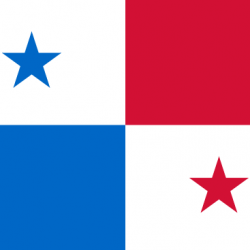
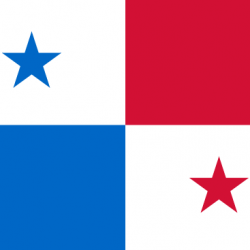
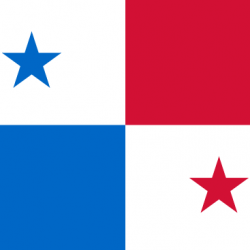
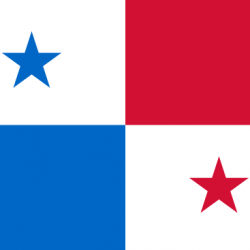
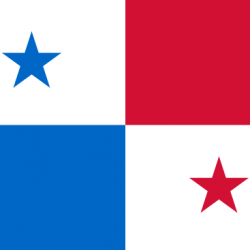
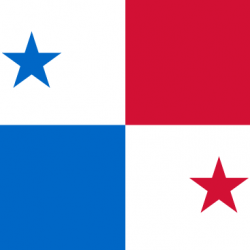
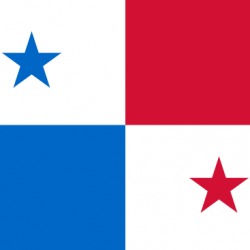
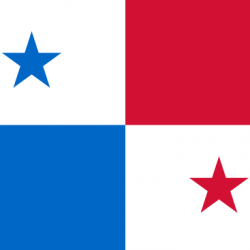
 We will not leak your personal information
We will not leak your personal information